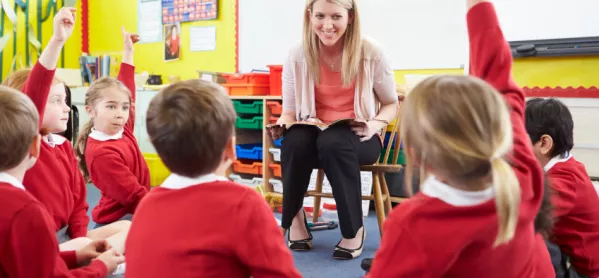After diktats on phonics, are teachers really free to choose how to teach?

Every teacher has those lessons that don’t just go well, they go stupendously well.
The difficulty is in replicating it. Another day, another class, a different teacher and that explanation of photosynthesis, complete with a Year 2 child dressed as a leaf, falls flat instead of bringing enlightenment.
Academics know this. They take into account that sometimes things will just go well: for example, in education they test whether a particular programme or intervention has helped children to make progress or whether they would have done so anyway.
Recently, John Jerrim, reader in educational and social statistics at the UCL Institute of Education, found that a particular mathematics programme may have helped children to make one month’s progress over a year.
It wasn’t a large amount of progress and the analysis had to combine two smaller studies for the effect to show up, meaning that a larger study would be wise, Dr Jerrim added. Then he suggested that the intervention should necessarily become national policy.
Say that again?
Why would an intervention with only limited evidence for a small positive effect be considered for a national roll-out? Weren’t national roll-outs something the last Labour government did anyway, with the literacy and numeracy strategies?
For the past five years, Conservative education secretaries have been talking about promoting autonomy and trusting teachers.
But Dr Jerrim would have known that the power of this study wasn’t so much in his statistics, but in the branding and the words used to describe it. In this case, the words “mastery” and “Singapore”.
Mathematics Mastery has been developed by Ark Schools based on Singaporean teaching. It includes some of the “mastery” teaching methods that are thought to contribute to the success of that Southeast Asian countries in the Pisa (Programme for International Student) rankings - in particular studying fewer topics in more depth and the frequent use of objects and pictures.
And while the Mathematics Mastery programme itself is not subject to a national roll-out, the concept of “mastery” is already been touted as the answer to the perceived mathematical shortcomings of the nation - although there is still some debate over what, exactly, it means. For example, many “mastery” approaches will keep the whole class on one subject until everyone has “mastered” it and then move them on together, but the Mathematics Mastery programme does not do this.
Of course, there are many reasons why countries such as Singapore do so much better in the maths Pisa tables than the UK. The mastery teaching style may be prominent among them, but other factors include the culture, history and socio-economics.
Which is exactly why Dr Jerrim and his colleagues tested whether that teaching style will also produce results in the UK.
Anyone can read the study which, unlike many academic papers, is published in full, free of charge, online by the Education Endowment Foundation (EEF). They can also read Dr Jerrim’s cost-benefit analysis, jointly authored with Professor Anna Vignoles, professor of education at the University of Cambridge.
Teachers can decide for themselves what they think of the impact. They can see that the findings are of “moderate” security. They can decide either “Yeah, it’s worth a punt” or “No thanks, we’ll leave it”.
This is the ideal of an evidence-based profession. But perhaps that ideal should be tempered with a little reality. While teachers should be able to read the evidence and decide for themselves whether to take it further, that freedom is necessarily limited. For a start, it takes time. And even when time is found, there are other considerations: inspections, tests, the budget and maybe even peer pressure. If everyone else is doing it - why aren’t you?
And so arises the fear that, rather than evidence, it is the buzz that is driving the mastery wagon.
Which is why the debate over what evidence is needed for a national policy is not a debate about evidence at all, but about trust.
There is strong evidence supporting the use of phonics to teach reading. But the government did not let that speak for itself. Phonics was sledgehammered into primary schools, with changes to legislation, inspection and millions spent on a new statutory test, in a way that risked alienating the government’s trusted professionals from a teaching method that had long enjoyed much support, albeit not uncritically.
The mastery teaching method, which means less differentiation, is also not without its critics. And, judging from tweets I have received, the Mathematics Mastery programme certainly isn’t.
The EEF-funded evaluation has shown, so far, a small but positive effect. That is all that the evaluators want to claim. While that means the government would do well not to spend millions on rolling it out as a national programme and there is no evidence that it will revolutionise maths, it may be that some schools will find it useful. And some pupils will then do better as a result.
But, of course, the question is not whether schools should be free to use a certain method, it is whether schools are free not to use it. Do teachers trust the government when it says they really are free to choose how to teach?
Keep reading for just £1 per month
You've reached your limit of free articles this month. Subscribe for £1 per month for three months and get:
- Unlimited access to all Tes magazine content
- Exclusive subscriber-only stories
- Award-winning email newsletters



